Screenshot (Photo: Screenshot)
Bad childhoods: When Ofek Rishon spoke, no eye remained dry
For four days, 150 girls between the ages of 12 and 18 gathered for a hackathon funded by the veet company, which aims to encourage entrepreneurship that will fight phenomena such as online and physical bullying, boycotts, and body image challenges.
We joined to hear first hand about the challenges of growing up in their world, spoiler - we cried
Mia Agassi
12/08/2022
12/08/2022
Share on Facebook
Share on WhatsApp
Share on Twitter
Share by email
Share in general
Comments
Comments
"Have you ever suffered bullying on the basis of body image?"
I asked N., not yet 13 years old, who looked at me with her green eyes and without averting her gaze felt her body structure with her hands and said: "Of course, as you can see..."
We hear about it in the news, we read heartbreaking posts about it Lev, but believe me, until you hear the things with your own ears, you don't understand how shocking these phenomena are.
Today is N.
Tomorrow, it could be your daughter.
This is the reality of girls and women nowadays.
and not just this.
Boycotts, bullying, verbal violence about a gender moment and any other background, bullying and more, it seems that they have all become the norm, something that will obviously happen, if you are just a little different from others, or even if you just look bad in someone's eyes.
But the hackathon organized by the Veet brand aims to reduce these phenomena and at the same time, to strengthen those who suffer from them.
In an unusual and impressive step in the local landscape, the Veet company decided to channel a very significant part of its annual budget in favor of a unique hackathon.
For four days, 150 girls gathered who were exposed to publications about the event through Story's, registered and were filtered out of hundreds of girls aged 12-18.
The idea behind the hackathon was to encourage social entrepreneurship, which aims to fight phenomena such as bullying online and in the physical space, boycotts, body image and all those things that teenagers have to deal with nowadays.
The agreement is that the girls think of an idea, and Veet implements it, in all its aspects: budget, financing, logistics, PR and the like.
150 girls from 12 to 18 (Photo: Avi Johnny)
I went over to talk to the girls from Mitzvot 13: S, 15, Gaia, 13, and Ella, 12. The group's girls' project was based on a music video in which boys and girls who have experienced social difficulties and bullying sing about their personal stories with original lyrics, alongside celebrities who have gone through similar things.
"In our opinion, this is the best way to reach as many people as possible and explain to them about these phenomena. The celebs will attract people to the clip and that way they will understand that these are phenomena that many suffer from," they said.
"We dream of going everywhere with this music video. Presenting it on stages, at conferences, maybe even at Eurovision."
Their connection to the project comes from a very personal place.
13-year-old Gaya said: "When I was fat, they laughed at me. After that I lost weight, so they laughed at me for being thin, and then I came to lose weight, and then they laughed at me again - that I'm fat. No matter what you look like, you'll be laughed at. But I don't take it anymore."
12-year-old Ella said that "I am short relative to my age, so I was always laughed at for being short."
S. told me that she has been on the athletics team for three years and has great achievements, but the road there was not easy: "In the beginning they told me that I wouldn't make it because I was too thin and now, I proved to everyone otherwise. My family supported me and my friends also supported me, but there were people around me They just tried to take it down and told me I had no chance."
They also had complaints about the education system: "When people call to carry things, they always emphasize that only boys are needed because it is heavy, girls are not given a chance to even try."
Today, there is nothing in the school's regulations that refers to the physical and emotional empowerment of girls (Photo: Avi Johnny)
I also heard the covert criticism of the educational institutions from the members of team 29: M., 13, A., 13, V., 14, and N., 14. for children with disabilities".
They were the ones who enlightened my eyes to the fact that "today there is nothing in the school regulations that refers to the physical and emotional empowerment of girls.
There are laws and there are regulations that support it indirectly, but not directly.
Our ambition is to normalize it.
Make it an integral part of the school's reference and it is much more than stickers.
It's a change in attitude so that there are clear laws about it."
In team 28, I met Amit Tali, 12 years old, Gali Levy, 13 years old, Lial Halfon, 14 years old, and Stav Cohen, 14 years old. When I asked them if they think there are many girls who experience shaming and bullying, they answered with the utmost naturalness: "Everyone experiences it. Even if you are the most beautiful in the class, you will be bullied. Our project is not digital and does not cost a lot of money and it is called 'Lifting myself, lifting myself'. The plan is to take a large Bristol and wallpaper and stick it in the girls' bathroom with a marker. Anyone can write down sentences and anyone can respond to her. For example, someone who is having a bad day, then she can write down 'I don't have friends', 'I'm not pretty' and things like that. Then anyone can respond to her and lift her up. And vice versa, if someone feels beautiful and confident in herself, she will project it out and that way it will empower other girls who will read it. Of course, if we win then we will also hang such wallpapers in the boys' bathroom, so that they will also encourage each other. We got the idea following girls who starve themselves and girls who want to commit suicide and we hear a lot about it,That's why it's important to be aware of it."
The Ministry of Education is not doing enough for them (Photo: Avi Joni)
During all the days of the hackathon and also on the last day (over 8 hours each time), the girls were closely accompanied by the brand's managers who were around the place and various consultants.
Every technical or conceptual question had an immediate answer.
Drinks, smoothies, a sumptuous lunch and healthy snacks were available to them all day and it was evident that they were both happy and excited to be there and that the brand team embraced them and their inspiring ideas.
The hackathon was led by the charismatic Kim Ben Shimon and on the last day there was a Tiktok dance workshop by the talented Eve Braunstein, but nothing prepared any of us for the moment when she came up to give the first Ofek lecture.
Ofek Rishon, for those who don't know, is a girl who became famous following a video that went viral and went viral faster than wildfire.
The video, which shows Rishon - who was a little girl at the time - bitterly crying and saying "I want to disappear from the world" as she talks about the boycott and the abuse she goes through at the school where she attended, reached the "Ha-Hasuv" system, which interviewed Ofek, raised her story to public awareness and helped establish the "Boycott Patrol" - a group of young activists made up of boys and girls who went through boycotts and abuse and set themselves the goal of helping others.
Ofek came to Knesset committees, met with the most senior politicians and now lectures about her unbelievable story.
Usually, when they say that "no eye in the audience was left dry", they mean it literally.
In the case of Ofek Rishon's lecture, this is simply the truth and everyone was in tears and cried throughout the lecture, because it's hard not to.
She courageously and confidently unfolded the mask of mental and physical abuse she went through for six years, from first grade to sixth grade.
Harsh boycott, bullying, verbal abuse and at one point physical violence: "A boy who hit me once hit me again, so I tried to stop the fall, I fell on my hand and broke it."
Ofek Rishon also tells about the helplessness of the school system in dealing with these problems, blaming the victim, disavowing responsibility and all the elements of a horror story: "My mother sat all day with the counselors and teachers and every time they told her that the problem was me, that I needed treatment and they threw her phone numbers of therapists. Until finally we found a therapist who realized that the problem was not me. She was also the one who recommended not to go through school, but to deal with it."
Tragic sources of inspiration for groundbreaking ideas (Photo: Avi Johnny)
Rishon stood with the confidence that is reserved for the world's leading lecturers and spoke in an assertive and eloquent voice about the time when she had a mental breakdown to the extent that "I didn't get up from a wheelchair and the doctors didn't understand what was wrong", about the post-trauma from which she still suffers to this day, about the activity of the "Boycott Patrol" and the fact that she never , none of the children who hurt her at the time, have apologized, to this day.
No one apologized to her even when during the boycott period she was abused just because she was trying to show nobility: "I decided to donate hair to cancer patients and I had dozens of centimeters cut off. I posted the pictures on social media and thought that there would be cheering, but the exact opposite came. Everyone laughed at me, wrote that I looked Like Dora the Explorer. Me? I look like Dora? What's the deal? Dora has a monkey friend, even monkeys don't agree to play with me."
As after every lecture by Ofek, this time too a long trail of girls stood in line, to exchange words of sympathy with her and tell their story.
One of them, I learned, revealed during the hackathon that she is suffering from a severe boycott these days and is completely friendless.
She stood in line with her new friend - another girl she met at the hackathon and revealed that she also had a similar backstory.
And they are not the only ones.
"A patrol of girls at the school wipes out, as a group, any girl who is abused, also verbally" (Photo: Avi Johnny)
Throughout the event I heard a great variety of shocking stories.
One girl tells about her overcoming through her sister: "My sister is 100% physically disabled and constantly suffers from bullying, so I'm already used to these things and used to answering them. I built my confidence from protecting her all the time."
Another admits that there are things that cannot be forgotten: "Three girls from the class bullied me for no reason. It has already passed, today they don't bully me, but the case with Ethan doesn't leave my mind to this day."
I listened to the girl who told me with a sad and frustrated look: "In the fourth grade, some kids cursed me, bullied me, it was really hard. I cried a lot and went to the teacher. I still remember her words to this day: 'I'll take care of it.' I trusted her, but she She just didn't do anything."
Another girl confirms that this is the case in many schools: I'm lucky that elementary school is over and I'm moving up to the gifted class.
It seems to me that there is less bullying there.
There are other problems there, but they don't deal with that.
In our school I was never able to express myself.
There are the accepted ones and that's it, no one else has a place to express themselves, and every little thing, they will find something to get down on you and throw comments: 'how ugly this is', 'how ugly'.
Someone once told me: 'If you want to be accepted, you should be like me.
act like me and think like me'.
But I don't want to, I want to behave like myself."
I heard from one of the young girls about an underground activity - a "patrol" of girls at school wipes out, as a group, any girl who is abused, even verbally. "It's not violent, we don't beat or curse, But we put him in place.
Let him understand that this is not the point.
Every time there is someone else, and we are such a group that works together."
Out of these cases of girls helping each other and finding solutions, there are many stories like the first horizon, of complete helplessness, such as a girl who every day when she crosses the road on the way to school, the boy who stands at the security guard "curses at me, laughs at me, every time He has something to say."
And on and on and on - tragic sources of inspiration for the groundbreaking ideas that the thinking teams came up with.
All of these were added to the huge wall of stickers that was placed at the entrance to the complex, on which the girls anonymously wrote various messages, most of them heartbreaking.
"I wish I had friends," someone wrote.
The next day someone else responded to her on the note: "I will be your friend."
All the girls at the hackathon were exciting, enlightening, and above all, full of ambition and purpose.
Every one of the ideas I heard were brilliant as if they were veteran ideators and not children who just recently made a bok bat mitzvah.
But if there is a really cool idea, it is, of course, the winning idea.
Words can have a toxic effect. (Photo: Avi Johnny)
Meet Lee Wilensky, 13.5 years old, Shira, 14 years old, and Ofir Dadia, 14.5 years old.
The girls' winning idea was not chosen randomly or by lottery, but was determined by a tough team of judges, which included the brand manager, the star and mentor Michal Tzafir, the chairwoman of the national student council, and more.
Tzafir herself patiently listened to the pitch of each project, asked questions and did not even skimp on challenging questions.
All the indicators were carefully tested and the aforementioned trio came in first place, with a simple but ingenious idea: "It's a plastic bracelet.
One day there was a lecture by Shira Bar about eating disorders and she talked about how jewelry can also be a venture.
We thought of designing a pendant, but we didn't want to upset the person who already has a permanent pendant.
So we decided on a bracelet, a bit similar to what used to be with 'slander doesn't speak to me'.
We will make many designs for it, both white and white and neutral, and each such bracelet comes with a barcode.
As soon as you scan the barcode, you reach the playlist of empowerment/good mood songs on Spotify, which we have already started to compile.
This feeling, it turns out, is familiar to them.
One of the winners told me: "For me it wasn't at school and there was no boycott, it was at a summer camp when I was little and I was really taken care of. In the end I opened it up, I talked about it with adults and it passed."
The second told me that at some point in her short life, she fell into a personality crisis: "I felt that there was a lot of pressure on me to be who I wasn't, I became confused and frustrated and almost went into depression. Fortunately, my good friends, both from volleyball and from around, managed to get me out of it. I realized that I could be Just myself and it's great that way."
When I asked if they got to see from the side cases that happened to others and how they acted, Shira answered: "One time someone from the class went through some kind of boycott, just such a wave of bullying and we took care of her. I decided that I would remain her friend and that's it, not going with the wave. I wasn't attracted to it." .
In my eyes, this world is divided into people of talk and people of action.
Words, this is how Ofek Rishon explained, can also have a very toxic effect: "They are like a disease, they spread in the body and collapse it."
On the other hand, when it comes to real change, talk doesn't always mean anything.
I had the privilege of meeting dozens of young girls who decided that they would take the tools they were given, stop talking and start doing.
They are not only creative, they also prove that change starts with action and there is a lot to change, a lot.
Take an example from some girls who decided that they don't just waste the big vacation in front of the screen and start doing it.
Sometimes, the change is just a bracelet.
Sheee
Sheee-talk
Tags
women
Body image
boycott
sexuality

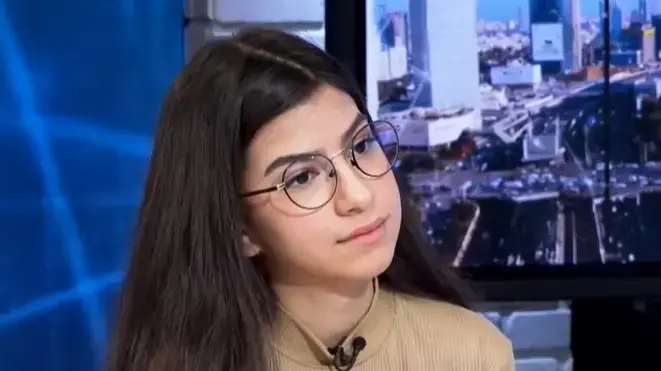
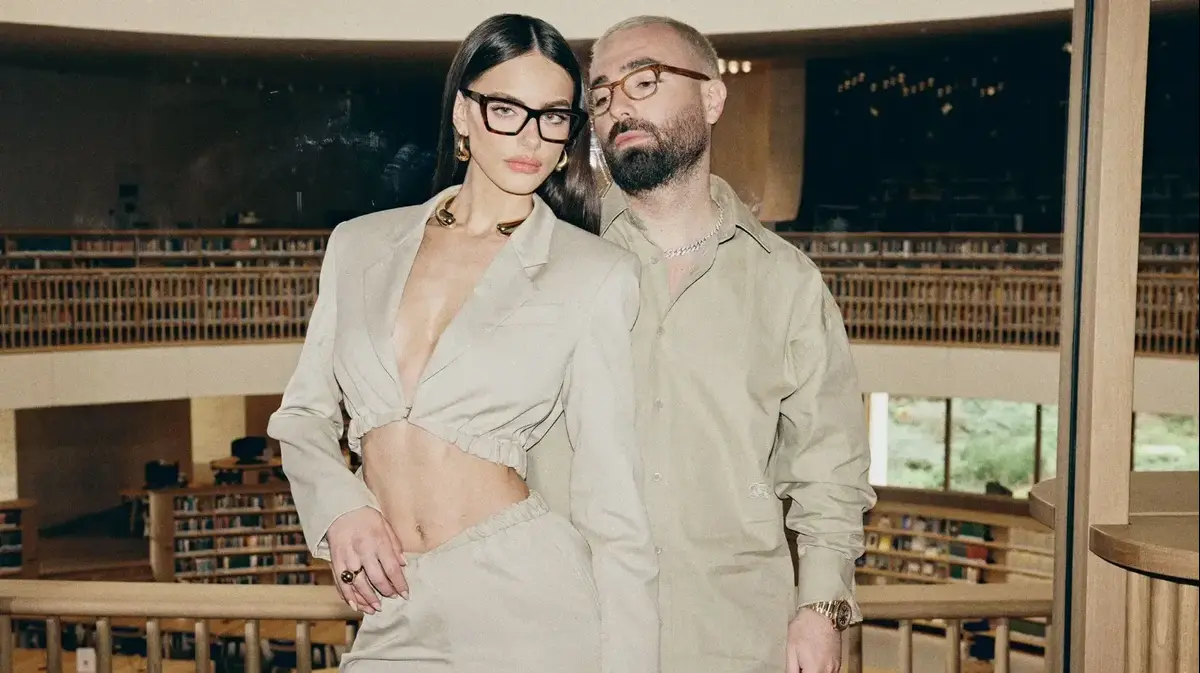
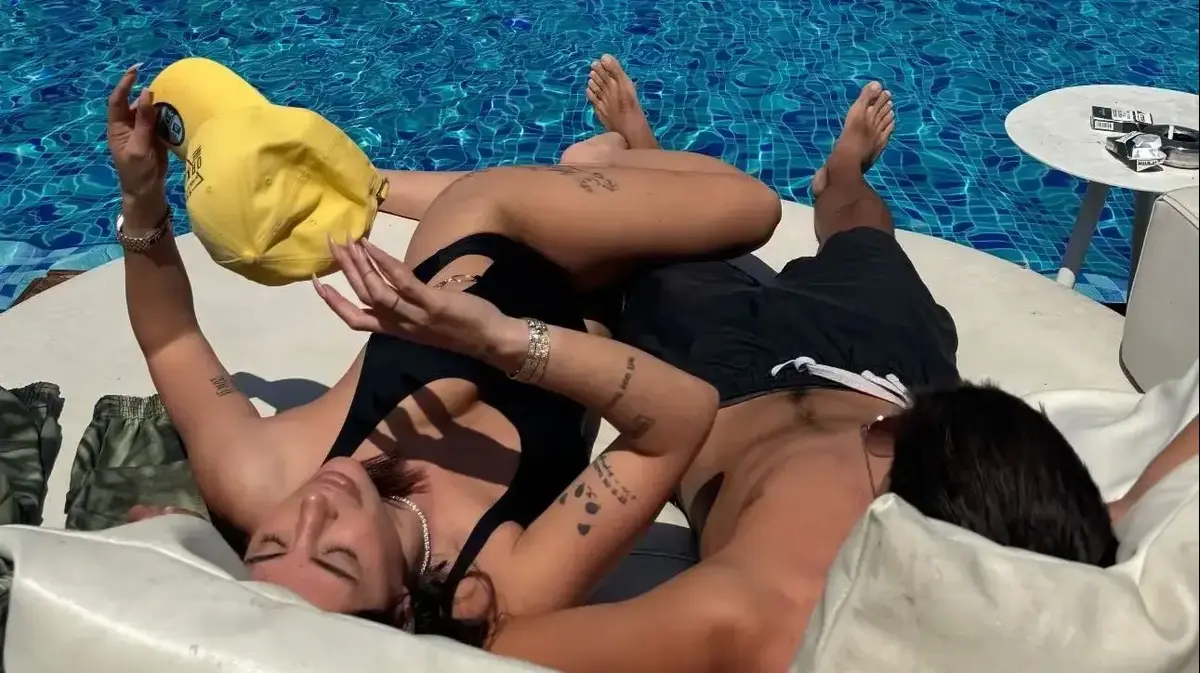
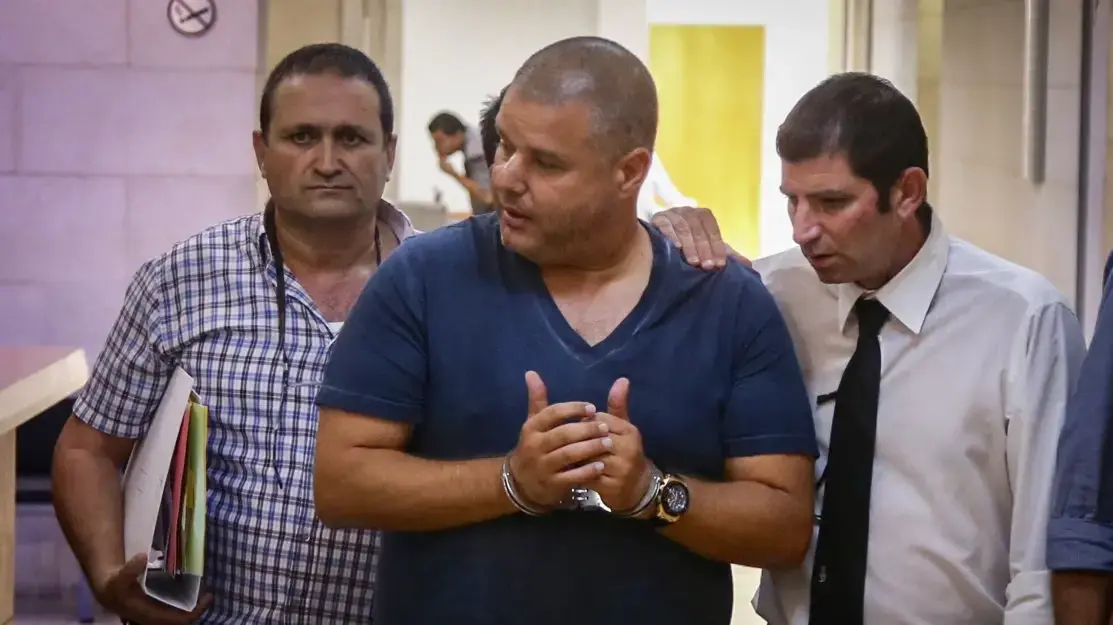
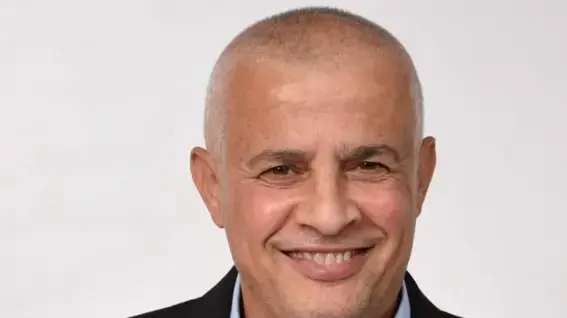
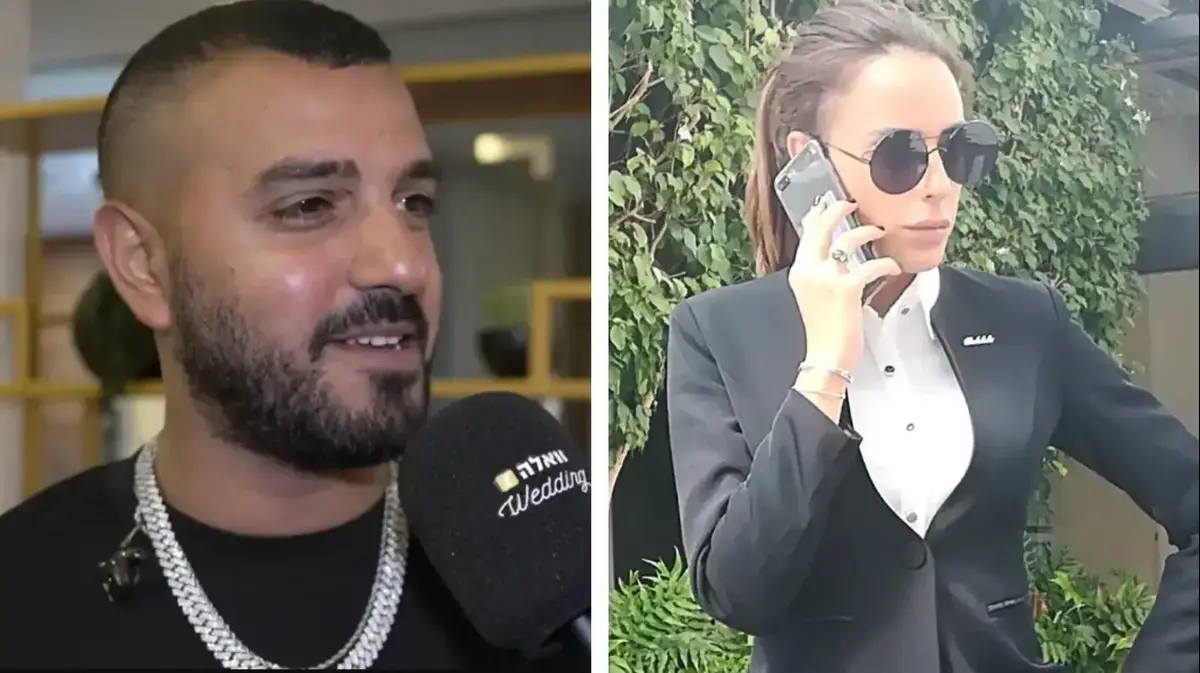





/cloudfront-eu-central-1.images.arcpublishing.com/prisa/KMEYMJKESBAZBE4MRBAM4TGHIQ.jpg)


